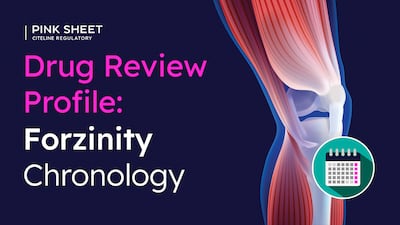Rare Diseases
The US Labor Department also added a proposed rule requiring PBMs to disclose additional compensation information to certain employer-plan sponsors.
Newly revised regulations for the implementation of China’s Drug Administration Law transition to a market authorization holder/product-centered regulatory approach in response to the rapidly changing biopharma environment.
It is “integral” that a planned increase in genomic testing supports access to treatments such as advanced therapies, says England’s chief scientific officer. Blood cancer and rare diseases are among the conditions expected to benefit from the country’s testing push.
Changing regulatory standards for cell and gene therapies extend the flexibility with manufacturing while the tabelecleucel complete response letter showed high expectations for rigor in clinical trials.
Products likely to be subject to evidence generation agreements under England’s Innovative Medicines Fund are those that are costly and which serve a low number of patients. Orphan drugs appear most likely to receive interim funding through the IMF.
The version of the Critical Medicines Act adopted by a key committee of the European Parliament could mean uncertainty for the manufacturers of orphan drugs, warns industry.
The JPY330bn package bundles existing and new support funds for the biopharma industry, with the national government recognizing its importance for both national security and economic growth.
The standard baseline of regulatory data protection will remain at eight years under the new pharma package, while market protection will drop to a year as standard. However, innovative products that fulfil certain criteria could get up to 11 years of market exclusivity.
Saol Therapeutics cannot conduct a new clinical trial of SL1009 in ultra-rare mitochondrial disorder, but aims to answer the FDA's complete response letter with new looks at available data.
England is set to become the first market outside of the US where Autolus’ CAR-T therapy Aucatzyl is reimbursed for acute lymphoblastic leukemia, after the country’s health technology assessment institution, NICE, recommended its use for certain patients.
Smaller datasets are being leveraged to develop and train artificial intelligence models, which can help overcome the limitations of small patient numbers in rare disease settings, CDER staffers wrote in NEJM AI.
The labeling recommendation that Duchenne muscular dystrophy patients should maintain proximity to an appropriate healthcare facility for at least two months following infusion will add to the treatment burden.
Concept outlined in NEJM by current FDA leaders is a ‘reasonable’ mechanistic approach that had been in development for several years, former Center for Biologics Evaluation and Research Director Peter Marks said.
The orphan drug share of US FDA’s 2025 novel approvals is holding steady, with examples of approvals based on a single trial with confirmatory evidence from UCB, Precigen, Jazz Pharmaceuticals and Stealth Biotherapeutics
A cluster of CRLs for rare disease applications based on one trial plus confirmatory evidence may represent a shift away from the regulatory flexibility that had come to characterize ultra-rare drug development
The UK’s early access to medicines scheme could be due a rethink, a senior figure from the Medicines and Healthcare products Regulatory Agency has suggested, after feedback indicated “discontent” with how the program functions.
Manufacturers who succeed in treating several patients with bespoke therapies could leverage platform data to gain marketing approval for similar products in additional conditions, FDA leaders say in a NEJM article that describes five prerequisites for use of the new pathway.
US FDA’s rejection of Biohaven’s troriluzole is a huge disappointment for patients with SCA and the company. But it is also a notable example of how communication strategies are changing now that FDA is making its ‘complete response’ letters public.
FDA reviewers cited several limitations of the videos, including a lengthy recall period, use of the term “today” in questions, and a lack of standardization in interview conduct.
The Pink Sheet’s Drug Review Profile looks at the clinical development and US FDA review timeline for Stealth's elamipretide for Barth syndrome.




















